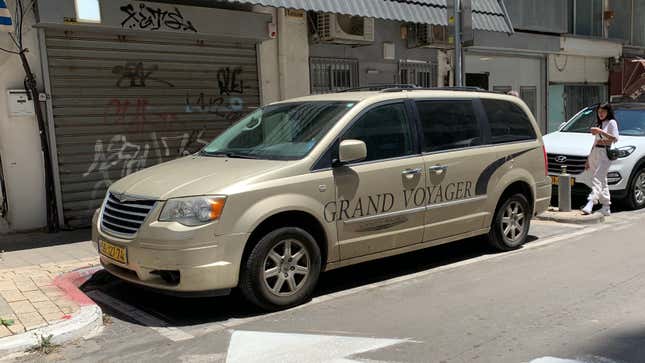
Carspotting is one of my passions. When you see what cars people drive and how they drive them, you learn a lot ab0ut them. So when I got stuck in Tel Aviv for months because of the pandemic, I got to work. And boy did I see some things.
Welcome to Little Car in the Big City, where we highlight fascinating cars we found walking around a town that is known for being uh... more prickly..? than everything else, but where every car is fighting to stand out: New York, New York. Tel Aviv, Israel.
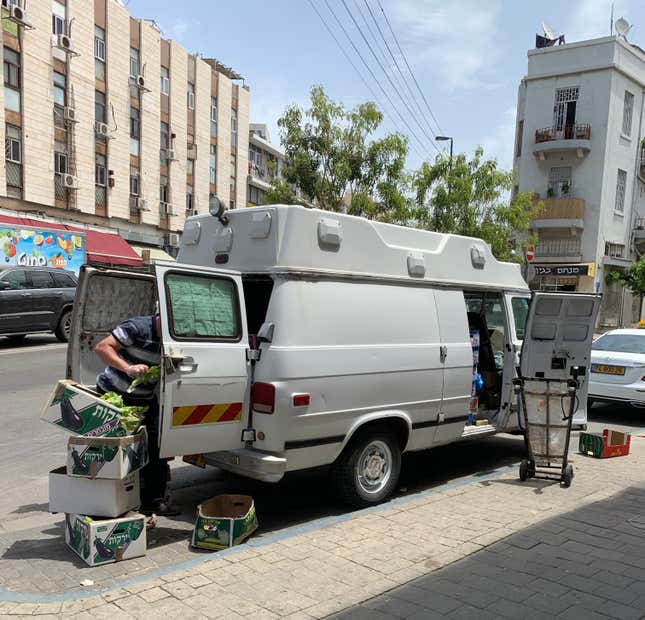
Now that I’m finally back stateside, I figured it’s time to give you all a more substantial taste of what there is to see on Israeli streets. I couldn’t justify a long series of one-offs for these cars. I simply don’t have enough to say about each one on its own. But together, they give a really good sense of what cars mean to Tel Avivians.
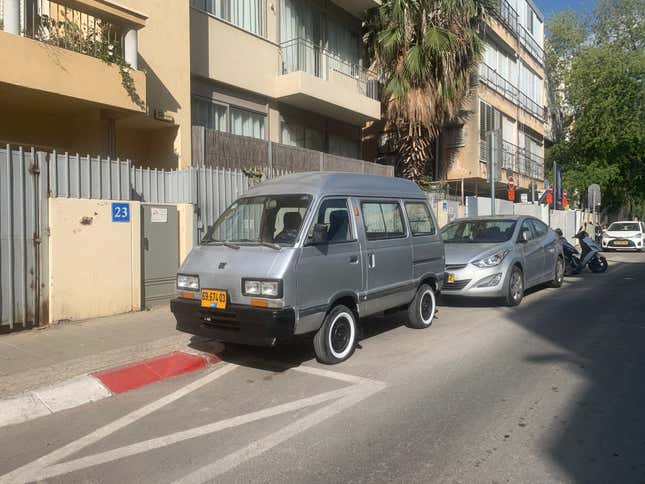
I’ve already shown the blog a few cars I saw in my time in Israel. There was the electric Renault, that hideous Ssang Yong Kyron, that Mitsubishi Triton and that pair of old Citroëns. But those spottings were just the tip of the proverbial iceberg.
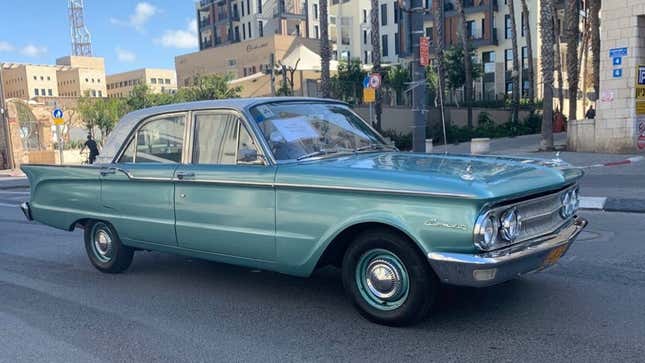
Tel Aviv is a city that has a car culture all its own, shaped by cultural and geographic proximity to Europe, the Levantine climate and lifestyle, a special affinity and respect for all things American, and the impulse to impress now that a city of orange groves rivals Palo Alto and Cupertino for high tech buzz. All of these features make for a streetscape occupied by a cast of vehicular characters of incredible diversity, from lowly B-segment hatches to Bentley Bentaygas on German transfer plates.
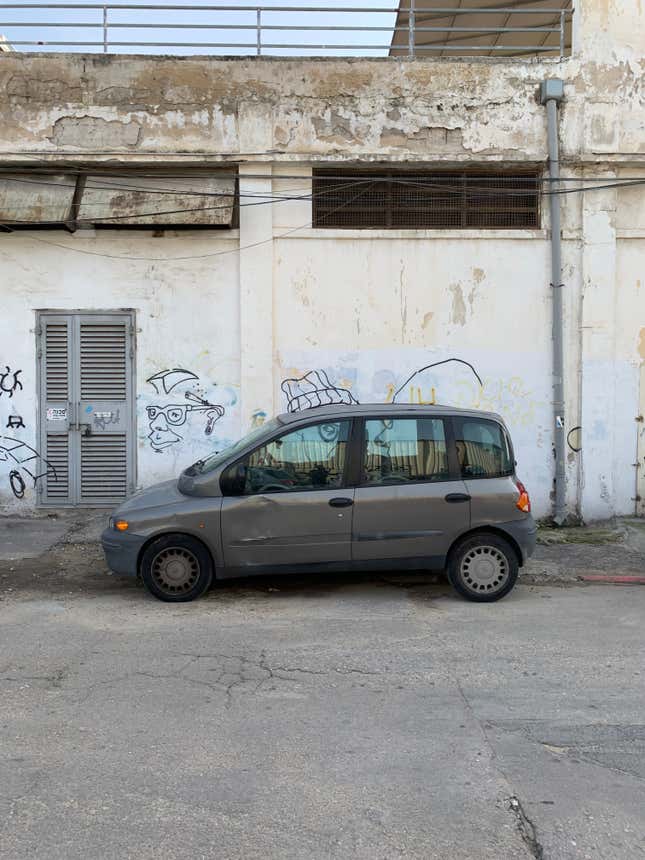
With the pandemic restrictions keeping everyone strictly within a 100-meter radius of their home for most of the time I was there, the majority of these spottings are from the bohemian neighborhood of Florentin where my sister lives. Long a working-class neighborhood, Florentin is now home to much of the city’s creative class. Between the studios and lofts, though, upholsterers, carpenters and cabinetmakers still maintain their shops. And their vehicles.
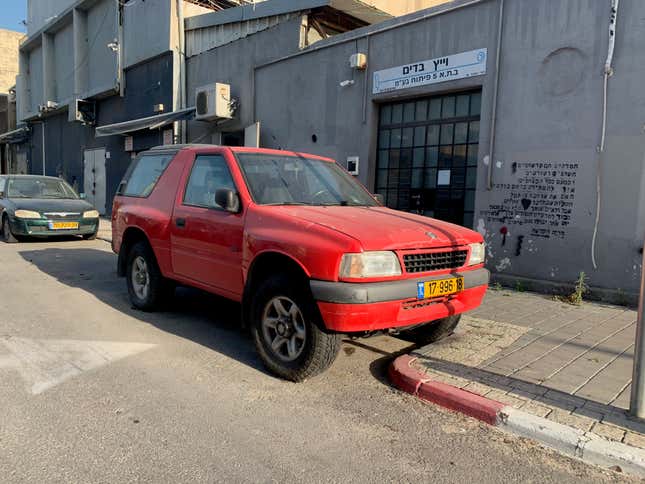
This Peugeot 504 pickup has long been a fixture of the neighborhood. I have memories of seeing that go back years at this point. My understanding is that it belongs to a craftsman of some sort whose wares no longer totally fit in his shop across the street. Though it looks decrepit, I do know that it still moves under its own power because it moves from spot to spot along this street.
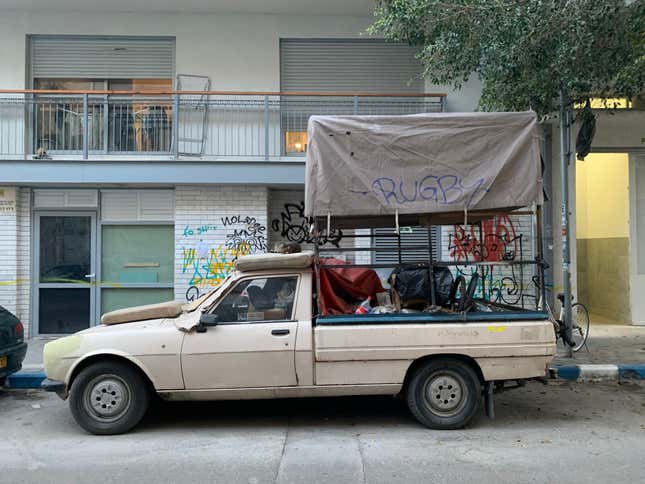
I’ve always loved this little Skoda pickup too. A pre-Volkswagen model, these (along with that Peugeot above) used to be pretty popular in Israel. I remember seeing them when I was a kid living outside Tel Aviv. This one is still hard at work and I would often see it carrying brand new furniture made in the neighborhood to customers around the city.
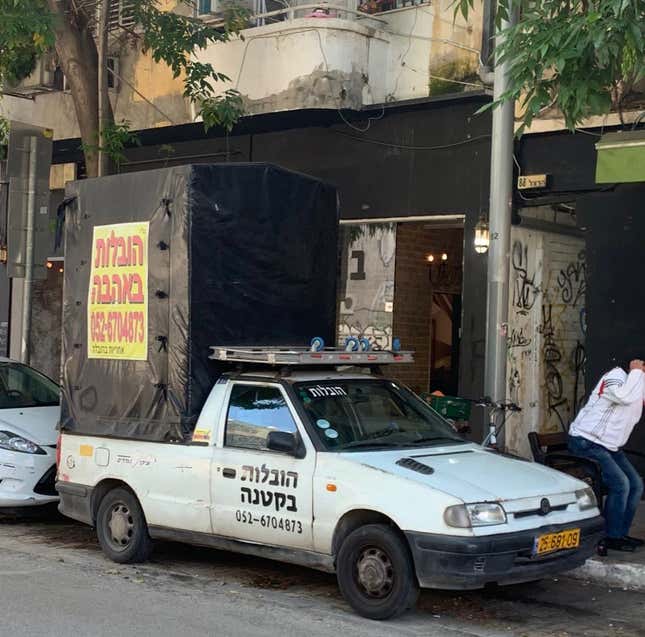
Moving on, I want to show you some of the city cars that Israelis love so much. Israel places a significant tax burden on new car buyers that can exceed 100% in some cases. Add to that gas prices that regularly hit more than five dollars a gallon in the best of times and you have a market that tends to favor the smaller cars out there. Like this set of Suzuki Swifts, one more recent and another that’s lucky to still be on the road. The sun may be strong here, but the climate is thankfully rather kind to bodywork.
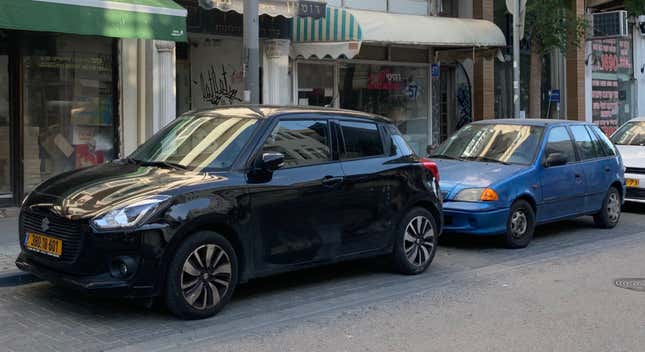
Another aspect of the Israeli car market is an appetite for something different. Check out this Opel Meriva with is suicide doors. We never got this car in America, but I think it would have made a pretty excellent Buick.
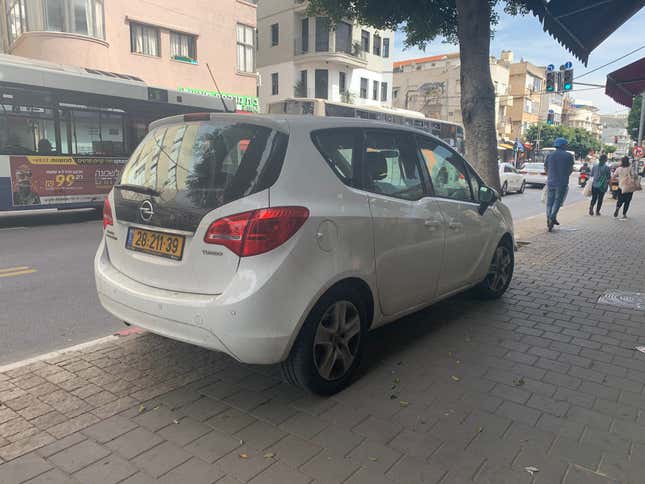
Speaking of Buicks, Israelis actually really love them. Not to the same degree as the Chinese, but there has long been a fascination with Americana as luxury here (just see that Mercury Meteor up top). That fascination has extended to the current day, even if what GM has on offer isn’t quite what it once was. Still, a big Buick sedan has a lot of presence among a sea of European, Japanese and Korean city cars.
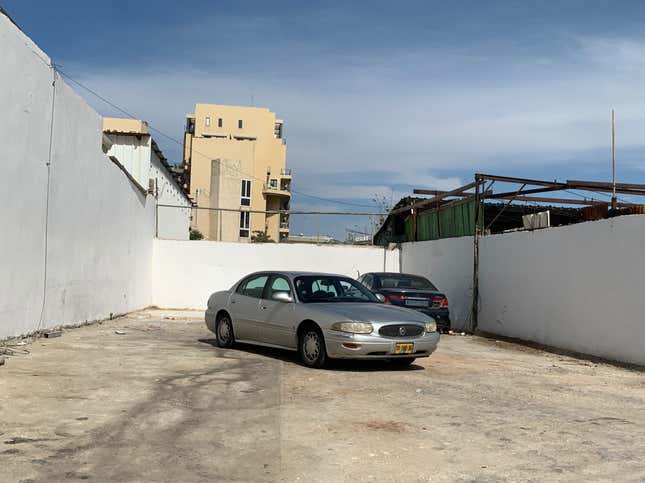
And on the subject of Americana, Israelis also love their Corvettes. There are a surprising number of them here, both new and old. This C7 was sitting on a quiet street around the corner from Levinsky Market, which has managed to remain a center for wholesalers of nuts and seeds, candies, and pickles as well as a hip locale for coffee and lunch.
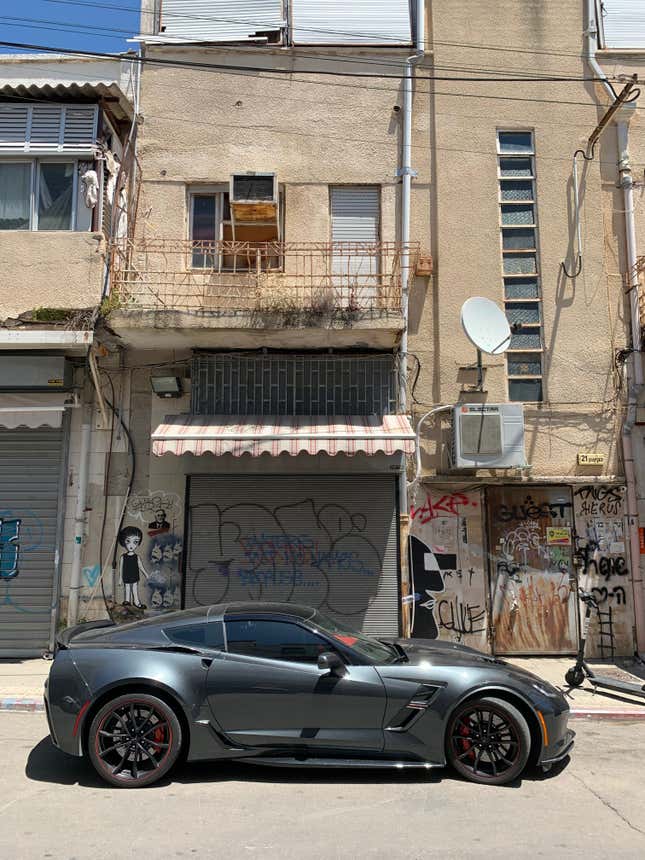
One of those coffee spots, the aptly named Cafe Levinsky, has a relic of an older, more naive, more provincial Israel out front playing dual purpose as a billboard and a little seating area. This fiberglass-bodied Rom Carmel pickup was one of the only cars designed and built in Israel. You don’t see them often as the climate has not been kind to their rudimentary composite bodywork, but this one is something of an icon.
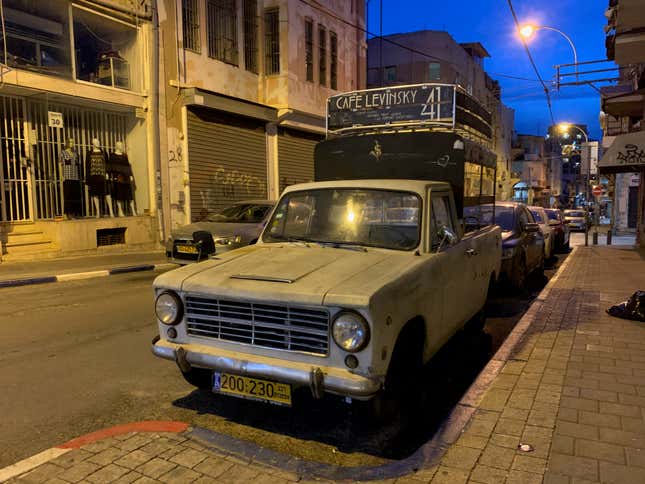
I want to close out with a spotting that was rare even for Israel. As a small market, Israel doesn’t get every car in a given brand’s lineup. Often the importers will try to gauge what will sell best and only offer those. Here, Peugeot kept the 407 line-up simple, offering only the sedan (and perhaps the wagon) on the local market. But that didn’t stop someone from bringing a glorious 407 coupe over. With its gilled front fenders and smiling mug, it’s a handsome car, even if it sits in the shadow of its older brother, the 406 coupe.
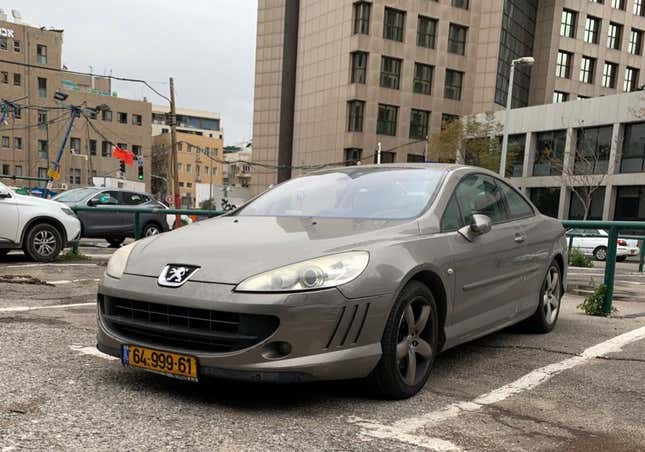
Someone rightfully had a soft spot for it and imported it on their own. You can do that when you live in a country that has harmonized its safety standards with Europe. Maybe America should try that sometime.
Though it was certainly frustrating to be stuck on the other side of the world during the pandemic, getting a chance to look at all the vehicles around me as a prism through which I could better know my surroundings was a real treat. I’ll miss definitely miss my time Jalopnik’s makeshift Middle Eastern Correspondent, but I’ll be back there eventually and I’ll have more car-spots to show for it. After this whole pandemic business, of course.